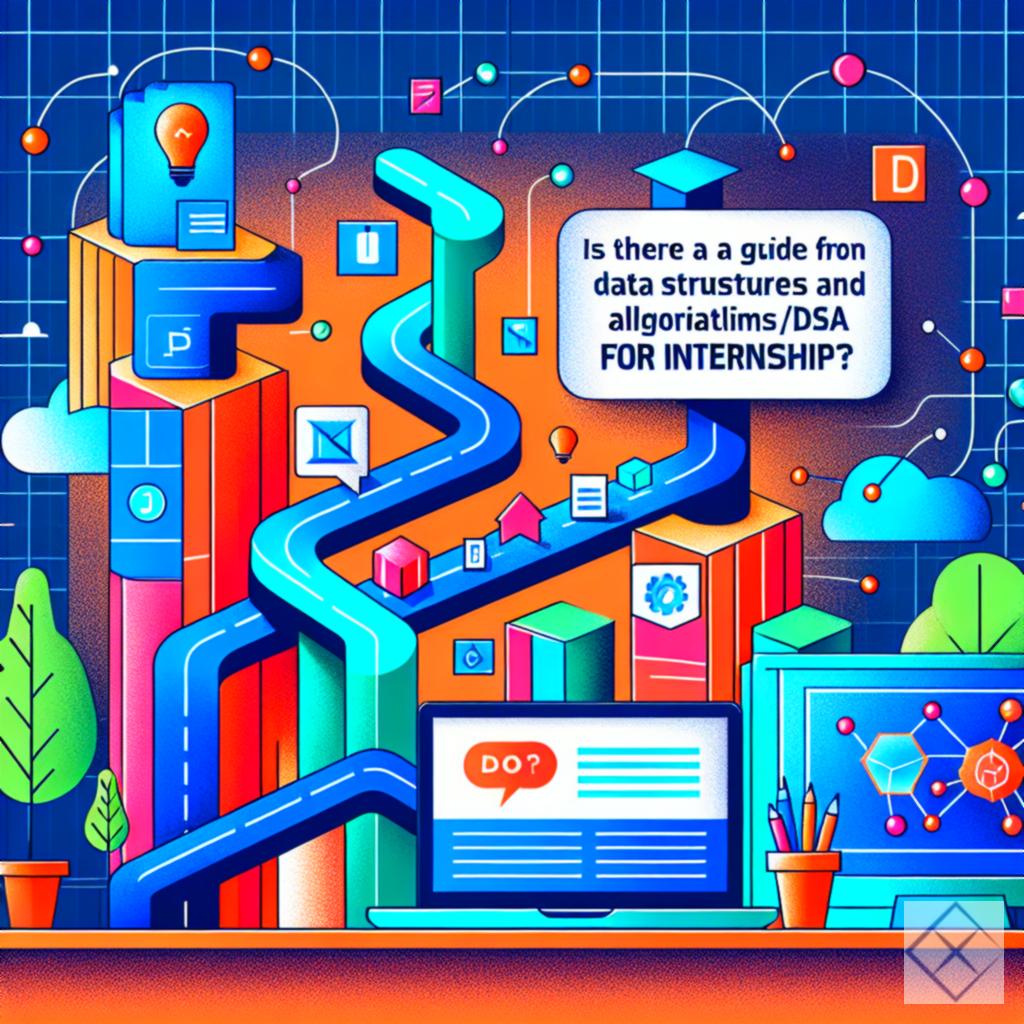Is there a guide focused on data structures and algorithms (DSA) that specifically helps with internships

Is There a Guide Focused on Data Structures and Algorithms (DSA) for Internships?
Embarking on the journey to secure an internship in software development can be both exciting and daunting. One of the critical areas that candidates often need to master is Data Structures and Algorithms (DSA). But is there a comprehensive guide that specifically focuses on DSA to help with internships, particularly in Java? In this post, we will explore this question, dissecting the importance of DSA in technical interviews, and suggesting resources tailored for preparing for internships.
The Importance of Data Structures and Algorithms
Understanding DSA is fundamental for any aspiring software engineer. Not only do they form the backbone of efficient coding practices, but they also serve as the primary basis for technical interviews. Companies often assess candidates’ problem-solving skills through algorithmic challenges, making DSA knowledge crucial. This is especially true for internships, where candidates are expected to demonstrate a solid foundation in these areas.
Why Java?
Java remains one of the most popular programming languages in the industry. Its object-oriented nature, extensive libraries, and versatility make it a preferred choice for many companies. Additionally, Java’s syntax and structure lend themselves well to implementing various data structures and algorithms, making it a perfect candidate for internship preparation.
Recommended Resources for DSA in Java
While there are countless resources available, a few stand out for their focus on DSA as it pertains to internships:
-
Books:
- Cracking the Coding Interview by Gayle Laakmann McDowell: This book provides a plethora of problems and solutions, with a strong emphasis on DSA. The Java solutions make it particularly useful for Java developers.
- Introduction to Algorithms by Thomas H. Cormen, Charles E. Leiserson, Ronald L. Rivest, and Clifford Stein: A more theoretical approach, this book covers a wide range of algorithms and data structures in depth.
-
Online Courses:
- Coursera and edX offer specialized courses in DSA that often include Java in their curriculum. Look for courses by universities like Stanford or MIT for rigorous academic insights.
- Platforms like LeetCode and HackerRank provide interactive problem-solving experiences, which are essential for mastering DSA.
-
YouTube Channels:
- Channels such as “mycodeschool” and “Abdul Bari” offer excellent visual explanations of complex topics in DSA, complete with Java implementations.
-
Coding Practice Platforms:
- Websites like CodeSignal, Codewars, and Interviewing.io offer opportunities to practice DSA problems while simulating real-world interview conditions.
Common Misconceptions
One common misconception is that memorizing algorithms and data structures is sufficient for success in interviews. While familiarity is important, understanding the underlying principles and being able to apply them to new problems is far more crucial. It’s essential to practice problem-solving in varied contexts and to grasp the trade-offs between different data structures and algorithms.
A Lesser-Known Optimization
A lesser-known optimization technique that can greatly enhance your DSA skills is the “Spatial Locality” principle. This principle suggests that accessing data that is close in memory tends to be faster than accessing data that is further away. When designing data structures, especially in Java, consider how memory allocation and access patterns can affect performance. Implementing structures that take advantage of spatial locality can lead to more efficient algorithms.
Conclusion
As you prepare for your internship journey, a focused approach on Data Structures and Algorithms is essential. By leveraging the resources mentioned above and understanding the practical applications of DSA, you can bolster your coding skills and enhance your problem-solving abilities. Remember, the goal is not just to perform well in interviews but to build a solid foundation for your future career in software development.
Happy coding, and best of luck with your internship applications!